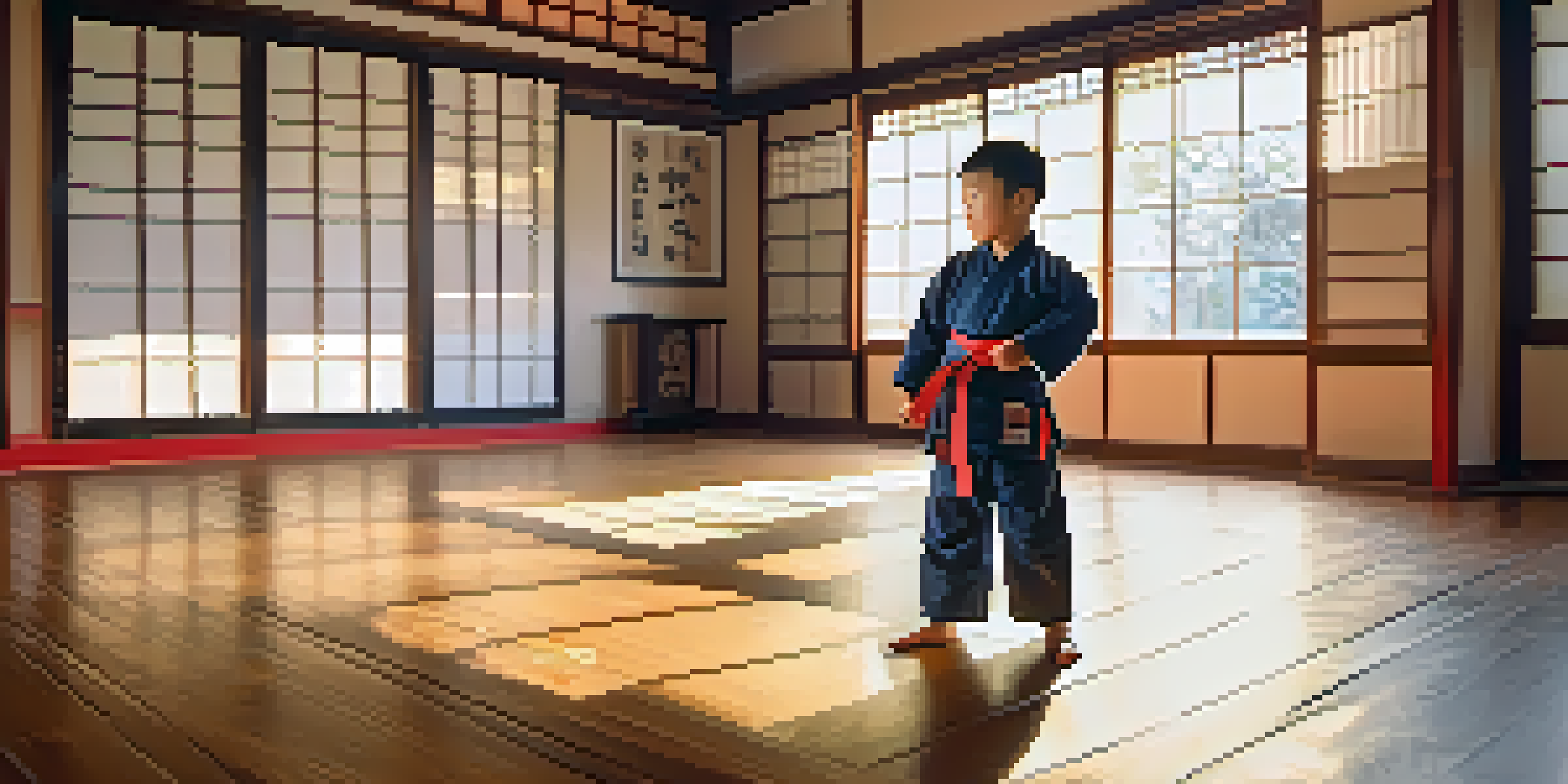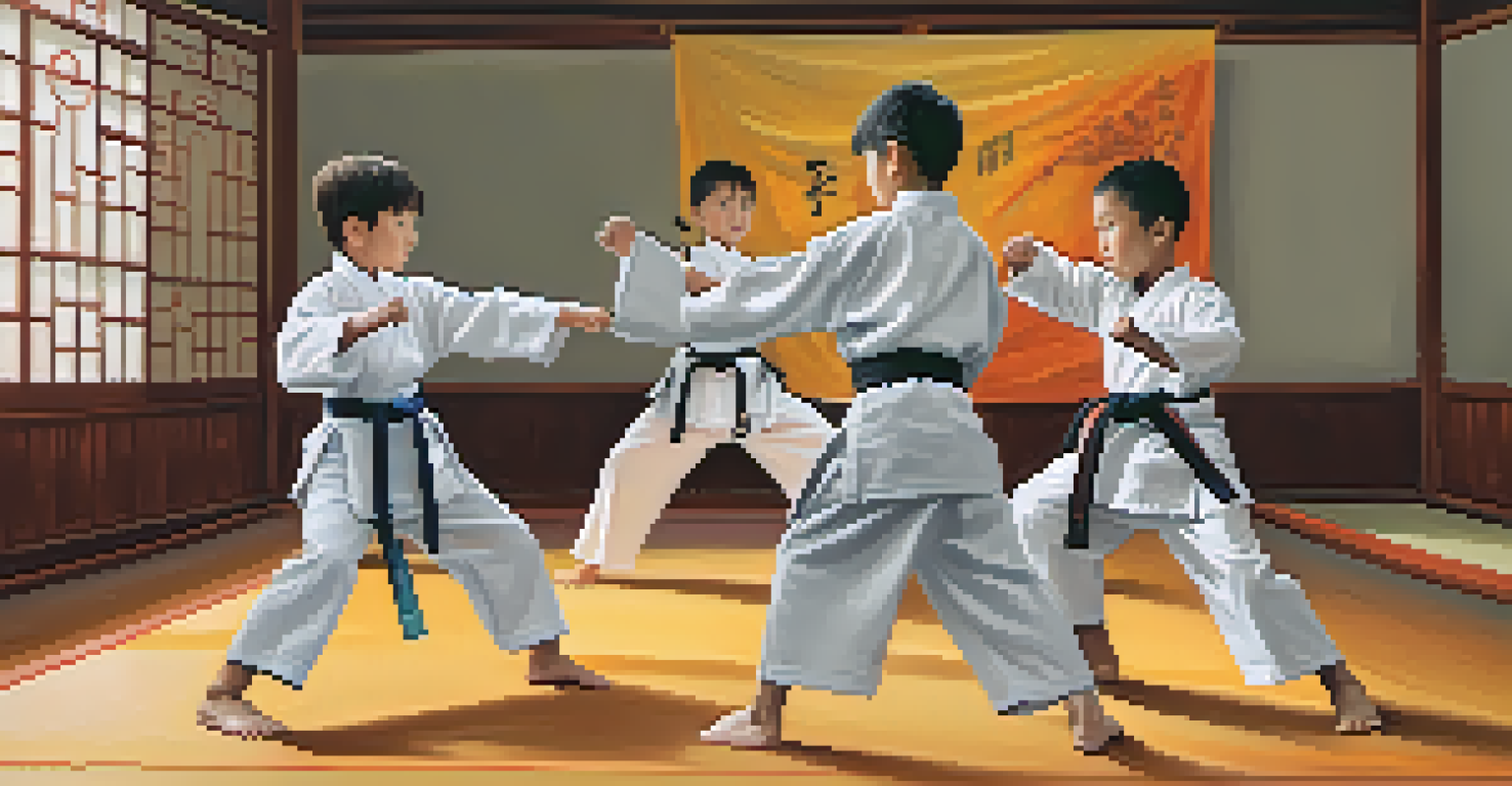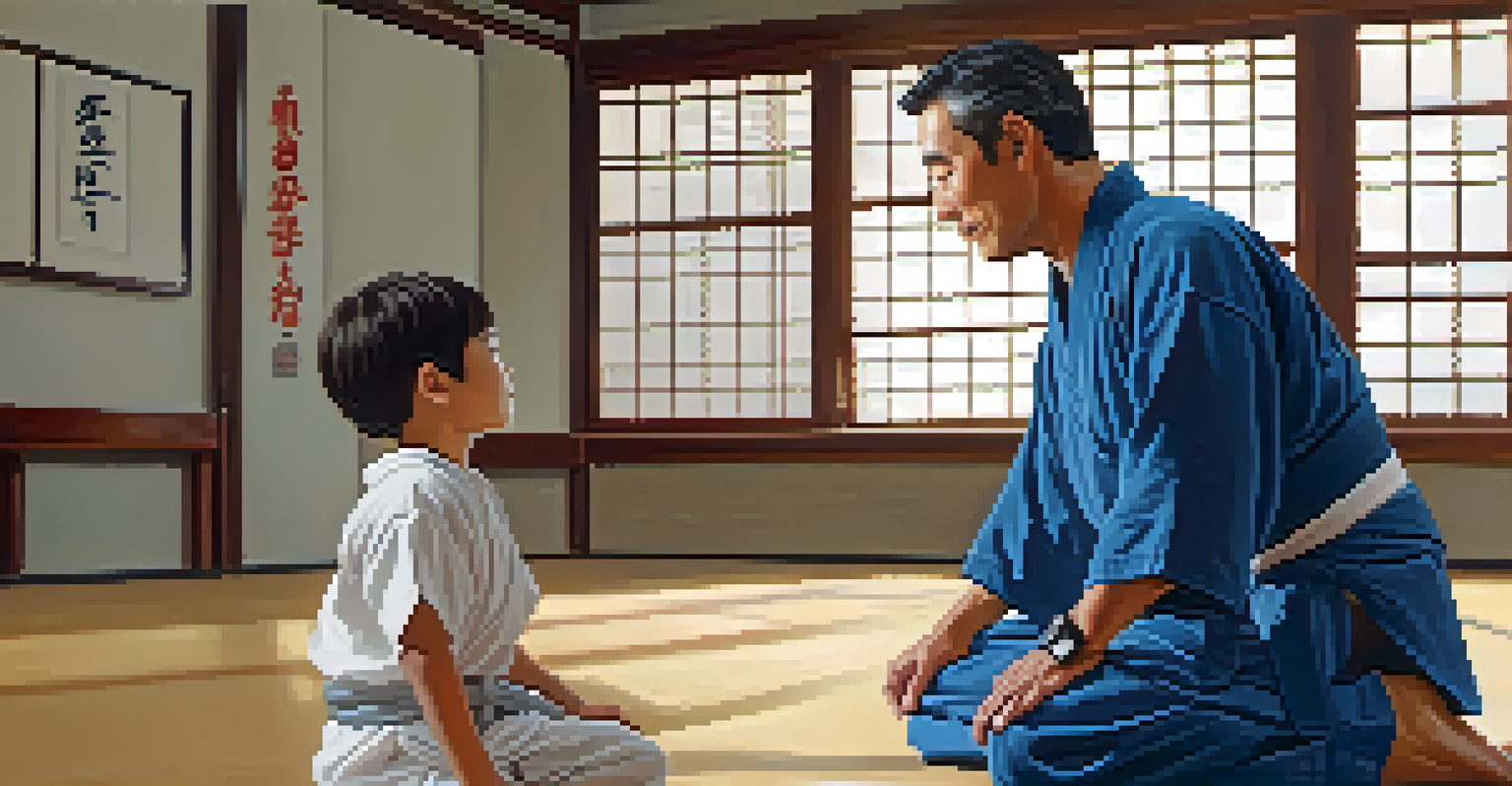Martial Arts and Emotional Resilience in Children

Understanding Emotional Resilience in Children
Emotional resilience refers to a child's ability to adapt to stress and adversity. It's crucial for helping children navigate life's challenges, whether they face academic pressures or social dynamics. Developing this resilience can empower kids to bounce back from setbacks and maintain a positive outlook.
It’s not whether you get knocked down, it’s whether you get up.
Children with strong emotional resilience can manage their emotions effectively, leading to better relationships and improved mental health. They learn to cope with frustration and disappointment, which are part of growing up. This skill isn't just innate; it can be nurtured and developed over time through various activities.
One of the most effective ways to build this resilience is through martial arts, which combines physical training with mental discipline. As children engage in martial arts, they learn to face challenges head-on, fostering a mindset geared towards overcoming obstacles.
Martial Arts: A Pathway to Resilience
Martial arts training offers a unique environment where children can learn to manage their emotions and reactions. Through techniques like sparring and self-defense, they experience both victories and defeats, helping them understand that failure is a part of learning. This acceptance is a vital step in developing resilience.

Furthermore, martial arts encourages discipline and focus, key components of emotional strength. Kids practice setting goals, whether mastering a new technique or achieving a belt level, which enhances their ability to persevere despite difficulties. This goal-oriented mindset translates into other areas of their life, making them more resilient.
Martial Arts Build Emotional Resilience
Engaging in martial arts helps children develop essential skills to manage stress and adversity effectively.
In addition, the supportive community found in martial arts classes fosters a sense of belonging. Children learn from their peers and instructors, creating a safe space to express themselves and build their confidence. This encouragement not only boosts their self-esteem but also reinforces their capacity to handle emotional challenges.
The Role of Discipline in Emotional Growth
Discipline is a cornerstone of martial arts training, teaching children the importance of commitment and hard work. As they engage in regular practice, they learn that consistent effort leads to improvement, which is a valuable lesson in emotional resilience. This understanding can help them navigate tough situations in life with a more focused approach.
The greatest glory in living lies not in never falling, but in rising every time we fall.
Moreover, martial arts instills respect for oneself and others, creating a culture of accountability. Children learn to take responsibility for their actions, which ties directly into emotional maturity. When they understand the impact of their behavior, they become more mindful and considerate, enhancing their ability to cope with social pressures.
Through the structure of martial arts, kids also develop a routine that can be comforting during tumultuous times. This predictability can serve as a stabilizing force, helping them manage stress and emotional upheaval when they face challenges outside the dojo.
Building Confidence Through Martial Arts
Confidence is a crucial aspect of emotional resilience, and martial arts is a fantastic way to build it. As children learn new skills and techniques, they experience a sense of accomplishment that boosts their self-esteem. This newfound confidence can positively impact their interactions with peers and adults alike.
The journey of progressing through belt ranks provides tangible goals for children to strive towards. Each achievement reinforces the belief that they can overcome challenges, leading to a more resilient mindset. This growth fosters a positive self-image, making them more willing to tackle difficult situations head-on.
Discipline Promotes Emotional Growth
The structured environment of martial arts instills discipline, teaching kids the value of commitment and hard work.
Additionally, martial arts often involves public demonstrations and sparring matches, which can be intimidating. However, facing these fears helps children learn to manage anxiety and perform under pressure, skills that are invaluable in any stressful situation. This experience further solidifies their confidence and resilience.
Emotional Regulation and Control in Training
Martial arts training emphasizes emotional regulation, teaching children how to control their impulses and reactions. Techniques such as deep breathing and visualization are often introduced, helping kids manage anxiety and fear. Learning these skills can greatly enhance their emotional resilience.
As children practice martial arts, they encounter situations that require quick thinking and emotional control. For example, during sparring, they must remain calm and focused, even when faced with an opponent's unexpected moves. This practice translates beyond the dojo, equipping them with tools to handle emotions in real-life scenarios.
By learning to recognize and manage their emotions, children become more adept at navigating social interactions. They develop empathy and understanding, essential traits for building strong relationships. This emotional intelligence is a significant aspect of resilience that benefits them throughout their lives.
Social Skills and Teamwork Through Martial Arts
Martial arts classes often promote teamwork and camaraderie, essential components of emotional resilience. As children train together, they learn to support one another, fostering a sense of community. This social interaction helps them develop strong communication skills and empathy, both vital for navigating life's challenges.
In martial arts, students often partner up for drills and sparring sessions, requiring trust and cooperation. These experiences teach kids how to work effectively with others, understand different perspectives, and resolve conflicts amicably. Such skills are crucial not only in martial arts but also in everyday life and relationships.
Social Skills Foster Supportive Networks
Through teamwork and camaraderie in martial arts, children enhance their social skills and build a supportive community.
Additionally, the friendships formed in martial arts classes provide a support system for children. Having peers who share similar interests and challenges can be incredibly reassuring, helping them feel less isolated when facing emotional difficulties. This network of support bolsters their resilience and overall well-being.
Long-Term Benefits of Martial Arts on Emotional Health
The benefits of martial arts extend far beyond the dojo, impacting children's emotional health in the long run. As they cultivate resilience and emotional regulation, they are better equipped to handle life's ups and downs. This foundational strength can lead to healthier coping strategies and improved mental health throughout their lives.
Research suggests that children involved in martial arts often display greater emotional stability and lower levels of anxiety and depression. By providing a structured outlet for their energy and emotions, martial arts can serve as a positive influence during critical developmental years. This proactive approach to emotional health can have lasting effects.

In conclusion, martial arts nurtures essential life skills that contribute to emotional resilience. As children learn to face challenges, build confidence, and develop social connections, they create a solid foundation for a healthier emotional future. Investing in martial arts can be one of the most beneficial choices for nurturing emotional resilience in kids.